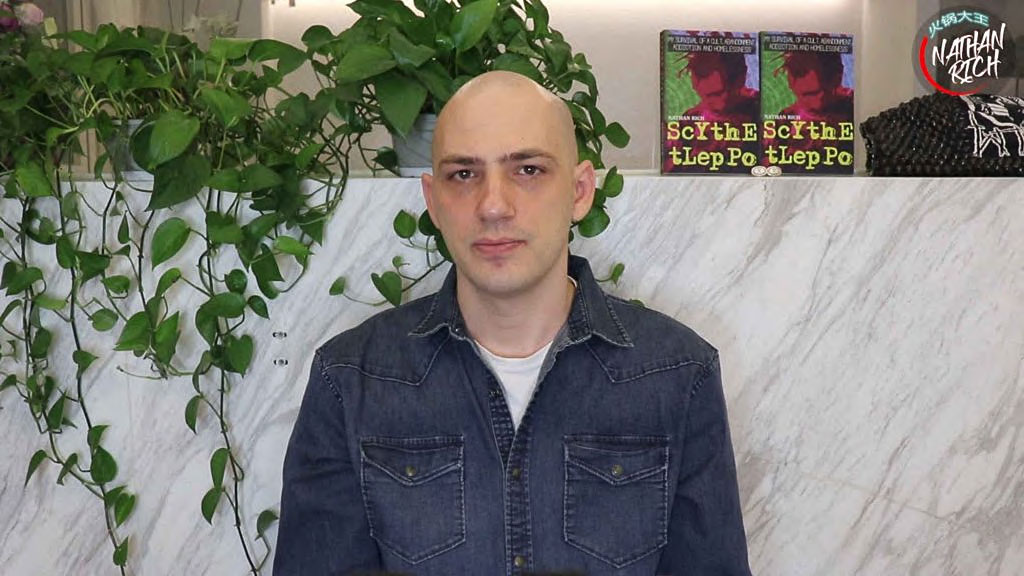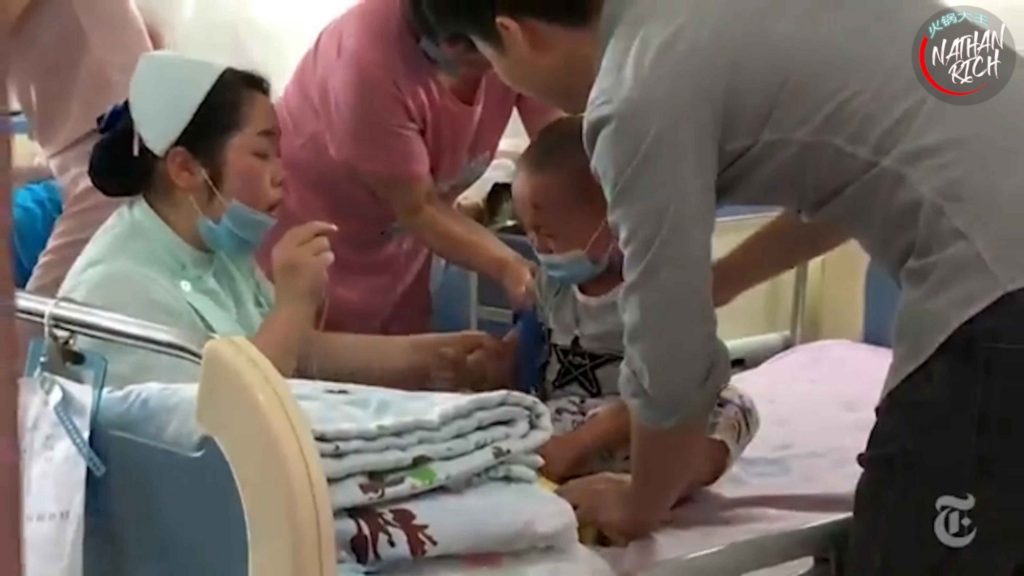The New York Times lies and propagande about China and Hong Kong.
China's Health care in New York Times
Nathan Rich is a debunking the New York Times image of China's Healthcare in a video titled “Inside China’s Predatory Health Care System.” It is best understood by viewing my accompanying video from Nathan Rich Hotpot King tem.
Nathan Rich Hotpot King tem. All sources can be found at his website nathanrich.online.
|
|
|
Nathan Rich & NYT China healthcare reporting |
Nathan Rich own word .... I want to talk to you about a video the New York Times released called “Inside China’s Predatory Health Care System,”¹ a title that suggests China’s medical field is preying on the public.
The video appeared elsewhere titled “How Capitalism Ruined China’s Health Care System,”² which of course suggests that hospitals in China are so driven by profit that the industry has collapsed into chaos.
In it, the New York Times makes several claims about the state of health care in China. The video is edited to elicit maximum fear, worry and anxiety.
There’s also an accompanying article which has much more information.³ The subtitle of the article is “Despite health insurance, terminally ill patients have to hunt around the world and on the internet for ways to stay alive.” The subtitle suggests the only way to fight cancer in China is to make your own treatments.
The video focuses on two stories - a man making cancer drugs for his dying mother, and a narrative about an overall health care crisis in China.

My name is Nathan Rich. I’m an American living in China. As such, I have a unique perspective on stories like these because even though my life is in China now, I still remember what it’s like to live in America and not know much about the real China other than what the media outlets say.
I’ve been to over a dozen hospitals in China. I’ve had dental work, Lasik and even surgeries in both countries. I’ve been insured and uninsured; I’ve waited in lines, paid fees, talked to doctors and nurses and have spent many nights by hospital beds here. I’ve seen real problems in China’s health care system and in America’s, but this video was actually a shock to me.
When I saw “Inside China’s Predatory Health Care System” for the first time, a wave of emotions washed over me. First and foremost I was depressed and sad for the lady dying from cancer. But even the first time I saw the video, I could tell something wasn’t quite right.
Before I go any further, I want to let you know that I was an only child of a single parent –my mother– and she passed away from cancer in 2010, so this issue is very important to me. Cancer is a heartbreaking, life shattering disease that needs a cure. But to find a cure, we need to be honest about the situation from all angles.

So let’s talk about the lady who died from cancer in this film.⁴
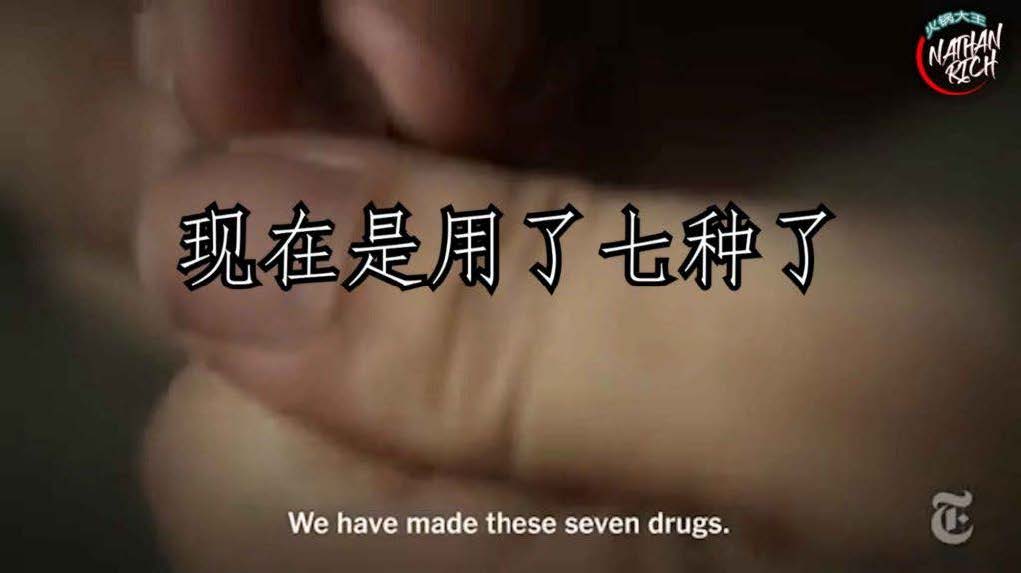
In 2011, a 68-year old former school teacher was diagnosed with serious lung cancer. At the time, her son was making what the New York Times called “decent money” at a pharmaceutical company.
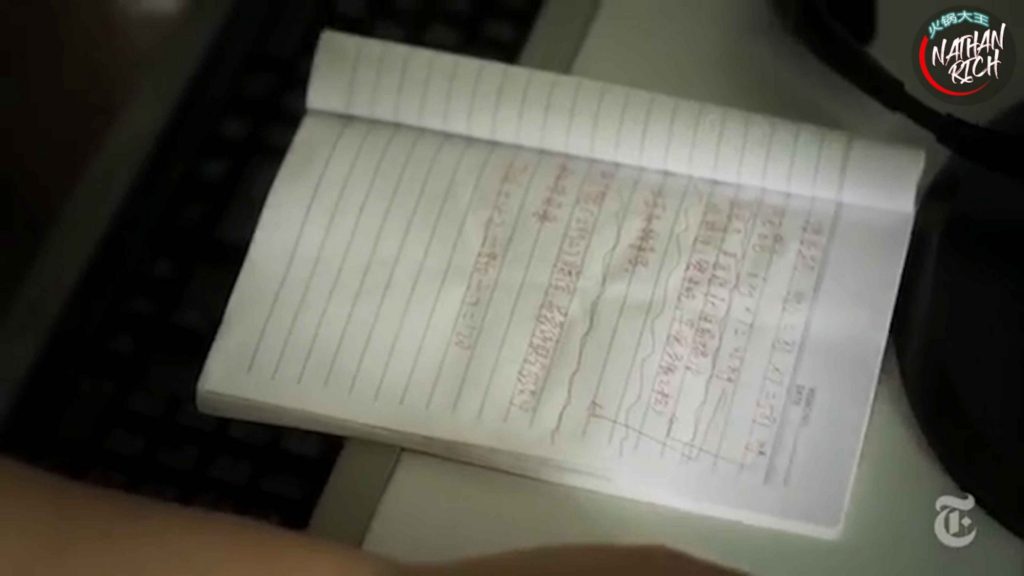
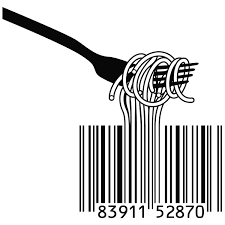
Over the next three years she got surgery, took traditional Chinese medicines, and underwent biotherapy. The doctors recommended chemotherapy, but she turned it down because she felt she was too old. They also recommended radiation therapy, which she also turned down. So, her doctor prescribed her Iressa, a lung cancer drug. She bought and took Iressa for nine months, after which the drug was no longer effective.
Around 2015, after all these treatments hadn’t quashed the cancer, her son quit his decent-paying job and moved in with her and her husband, to help in any way he could.
For two years her son made her traditional Chinese medicines and various cancer drugs from recipes he found on the internet. He was determined to help his mother live as long as she could. My mother died in America only two weeks after her cancer diagnosis so I know what it’s like to not have enough time.
In 2017 the New York Times interviewed the family and began working on their story. Surgery, Traditional Chinese Medicine, biotherapy, Iressa and the various drugs her son made weren’t able to beat the cancer. Though she did live for six long years after being diagnosed, sadly she passed away at 75 years old.
That’s her story - one of struggle and perseverance; she beat the odds and lived longer than most, but ultimately it was her time to leave us.
But now, let’s take a look at how the New York Times chose to honor her memory in “Inside China’s Predatory Health Care System.”
First, it’s an introduction for her son. Take a look.
NYT VIDEO: Drug recipes on paper
Narrator: “Zhejun earns $300 a month.”
We see her son now, and all they tell us about him so far is he is making drugs and he only earns $300/month, which is minimum wage where he lives. So he quit his decent-paying job to take a minimum wage-paying job and spend time with his mother. That’s his choice, but notice that they left that part out. The tone is already set.
Let’s find out what he’s doing.
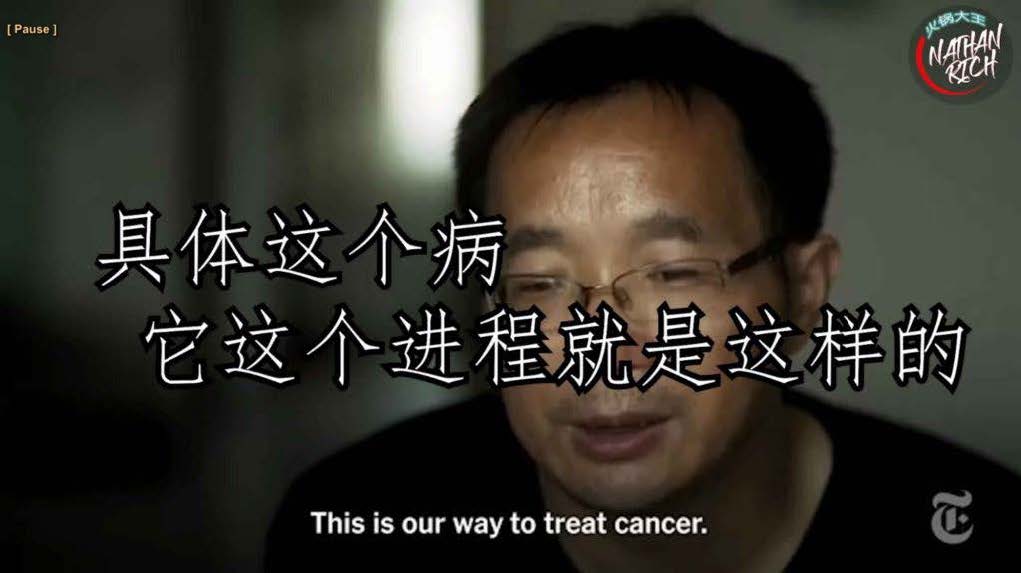
Her son.NYT VIDEO: Zhejun’s face and drug-making kit
Narrator: “The medicine needed to treat his sick mother costs 2000. He’s making WZ4002. It hasn’t been approved by Chinese or American regulators.”
The drug isn’t approved in America or China, so either he can source it himself or he can’t get it - exactly like in America. Can a man making minimum wage in America afford to treat stage 3 lung cancer?
I mean, just look at these news articles about the medical costs in America:
This is the number 1 reason Americans file for bankruptcy - it’s from medical bills.⁵
Many cancer patients must face bankruptcy or die⁶
Or how about this one?
42 percent of new cancer patients lose their life savings - by the way in this article it says the average amount lost is $92,000.⁷
These people have normal jobs and are facing bankruptcy and death. How do you think that would work out for someone making minimum wage in America?
So as hard as it is to confront, people not being able to afford cancer drugs is not a China-specific issue.
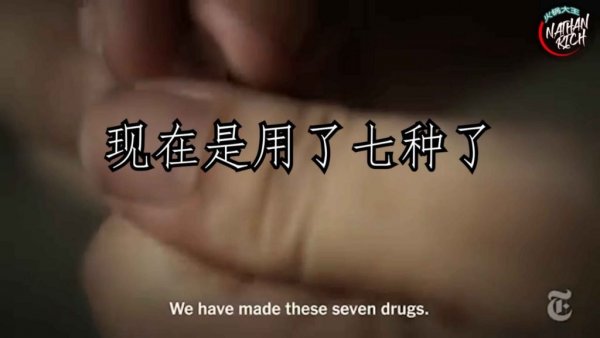
NYT VIDEO: Zhejun holding drugs
Zhejun: “现在是用了七种了”(Until now we have used seven kinds)
Caption: We have made these seven drugs.
Remember how I said when I first watched this video I could tell something was wrong?
This is a clip of him saying “Until now we have used these seven drugs.” But look at how the New York Times has translated it: “We have made these seven drugs.” A slight but important difference. He’s not saying he made all those drugs, he’s saying she has taken those drugs. We know, for instance, that he didn’t make the Iressa she took. So why are they altering what he said to suggest he made all of them? Well, to make you think they never bought any.
So now, with only this information about her son, the video moves on to the narration-based section. The New York Times makes several large claims and then they rely on editing, intense music, sound effects, misinformation and lies to make their case. But don’t take my word for it - let’s investigate together.
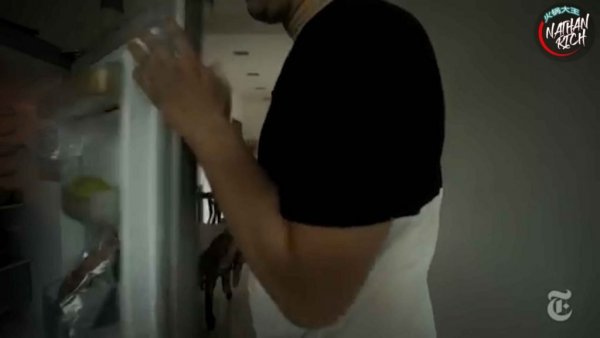
NYT VIDEO: Zhejun opening refrigerator
Narrator: “It’s a symptom of a health care system in crisis.”
So far the only thing we’ve seen is a man trying desperately to save his mother during the last months of her life, after a long and horrible battle with cancer. She’s received many treatments and now as a last-ditch effort he’s trying anything he can. He’s making medicine that isn’t approved in China or America. So if he were in America, what would be different? To me this sounds like a cancer crisis in the world, not a “Chinese” crisis.
|
|
| China's Healthcare system accordin to New York Times |
NYT VIDEO: Stock footage / B-roll of hospitals and the city
Narrator: “The introduction of capitalism and the retreat of the state meant that health care was no longer free - hospitals became profit driven.”
Weirdly, they are suggesting that hospitals in China are all profit-driven and somehow that’s the reason for this yet-to-be-revealed crisis.
In this video only one hospital is mentioned, and that hospital, like virtually all major hospitals in China, is public.⁸ The government sets the prices and the aim of the medical staff in those hospitals is the same as anywhere else - to treat patients.
Private hospitals in China aren’t the same as they are in America. In fact, all the private hospitals combined make less than 10% the revenue that public hospitals do.⁹
The vast majority of private hospitals in China have less than 100 beds and only a 40% occupancy rate¹⁰, while the largest public hospitals can treat well over 20,000 people in one single day.¹¹ Are you getting the picture? People in China go to public hospitals because here in a socialist country, they are the best. So how is this caused by for-profit hospitals again?
And China’s already committed to moving hospitals to be completely nonprofit by next year.¹² What is America doing about the profit its medical companies are driven by?
Also, does it seem weird to anyone else to hear an American newspaper complaining about capitalism in another country?

